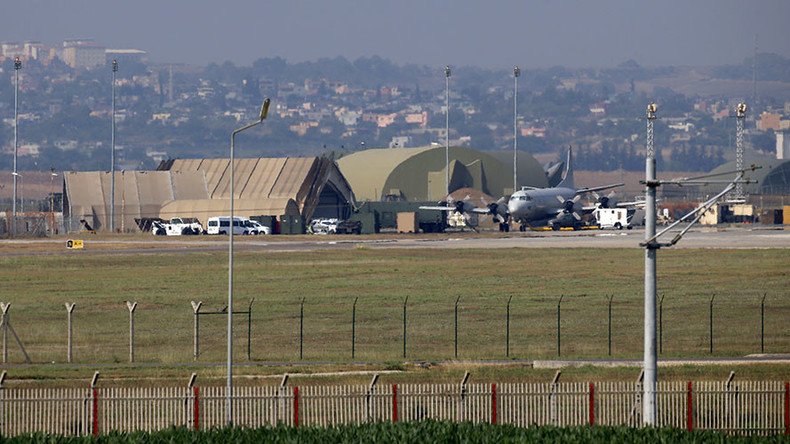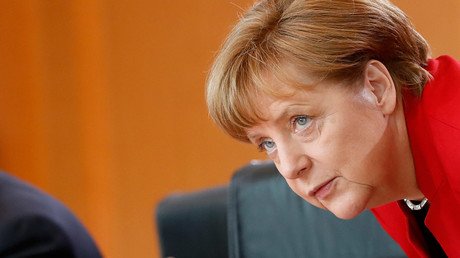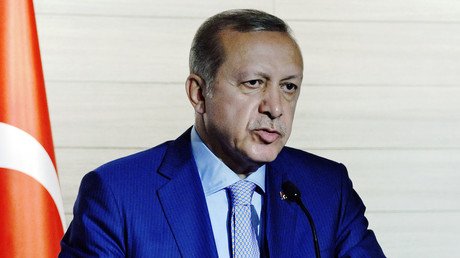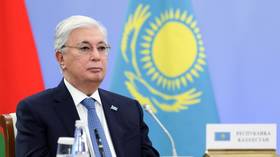German lawmakers’ Incirlik visit hinges on Armenian ‘genocide’ stance – Turkish FM

The Turkish authorities will allow German lawmakers to visit Incirlik airbase only if they openly reject the results of the parliamentary resolution that recognized the 1915 massacre of Armenians as “genocide,” Turkey’s Foreign Ministry has said.
“It depends on the steps taken by Germany. If they take the necessary steps, we will enable this visit [to Incirlik],” Turkish Foreign Minister Mevlut Cavusoglu said at a news conference in Ankara, when asked about granting German lawmakers permission to access the base, Reuters reported.
Turkish Foreign Ministry officials specified that the “necessary steps” involve the German government distancing itself from the resolution calling the 1915 massacre of Armenians by Ottoman forces genocide. The resolution was adopted by an overwhelming majority in the Bundestag in early June.
“But unfortunately I have to say that those that mingle and manipulate our history in an unfair manner cannot be allowed on this visit,” Cavusoglu said.
The German authorities were initially denied access to the base, located at the Syrian frontier, following the escalation of tensions between the two countries triggered by the German parliament’s decision.
The base is used by six German surveillance jets and a refueling tanker backing the US-led coalition’s operations against Islamic State (IS, formerly ISIS/ISIL) militants in Syria.
In response, a number of German lawmakers threatened to withdraw forces from airstrike operations.
There were no immediate comments from the German Foreign Ministry following the statement made by Cavusoglu.
Spokesman Martin Schaefer spoke on the issue earlier on Friday when asked if the German government could distance itself from the resolution passed by the parliament, the ministry noted.
“A resolution of the German Bundestag is a political declaration of a German constitutional body,” Schaefer said, according to Reuters. “I believe it is a very good idea ... that constitutional entities only comment on each other's work very carefully, if at all.”
Upon returning from a visit to Ankara, Germany's European Affairs Minister Michael Roth told broadcaster Suedwestrundfunk that attempts to resolve the dispute over Incirlik airbase had seen significant progress.
“I have the impression that there is great movement here,” Roth said. “I hope and wish that parliamentarians from our Bundestag will soon be able to visit our soldiers.”
Relations between Turkey, the EU and NATO soured in the wake of Turkey’s failed coup attempt on July 15. Ankara blamed its allies, including Germany, for a slow response and reluctance to condemn the act.
A day after the genocide resolution was adopted, Turkish President Recep Tayyip Erdogan claimed that Ankara “will never accept the accusations,” also threatening to drop the EU-Turkey refugee deal and let Europe deal with the crisis on its own, the Hurriyet Daily newspaper reported.
The decision of the German parliament angered not only Turkish officials, but local news media outlets as well, which compared Chancellor Angela Merkel to Hitler and said that Germany has no right to make judgements, given its “history of massacres.”
In response, Merkel denounced the Turkish reaction to Germany’s stance towards the Armenian genocide, saying that the comments made by the Turkish president were “incomprehensible.”
Turkey has admitted to killing Armenians in the period from 1915 to 1917, but strongly opposes that it was an act of genocide, arguing that the number of casualties is significantly exaggerated.














